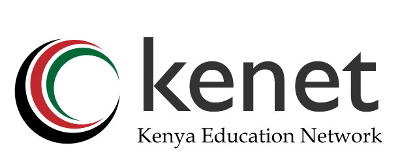You are here
Kilifi Teaching and Referral Hospital’s Digital Transformation Journey with KENET's BOLT Project
- Posted on: 17 March 2025
- By: admin
In Kenya, the digital divide remains significant, with approximately 25% of the population lacking access to the internet as of 2022. According to the UNESCO Report on Digital Connectivity in Education only 38% of schools in Kenya are connected to the internet. This highlights the disparities in educational resources and opportunities. These statistics underscore the critical need for initiatives like KENET Building Opportunities/Leveraging Technologies (BOLT) that bridge the digital gap and enhance access to information and educational resources across the country.
The KENET BOLT internet gap access project focuses on propelling internet development, enhancing global internet access and connectivity in line with the vision of the Internet Society, that is, The Internet is for Everyone. In its commitment to narrowing the digital divide within the educational and research sectors, KENET is connecting 20 beneficiary institutions, encompassing secondary schools, libraries, hospitals, and technical vocational colleges within a 10-kilometer radius of anchor universities on the KENET last mile fibre through a pioneering model known as "broadband islands." These islands involve linking education and research institutions within a 10-kilometer radius of a KENET anchor node, which could be a university, TVET, hospital, or any KENET member boasting a high-speed broadband connection, typically 1G or 10G. The last mile fibre or radio is deployed by KENET to serve these beneficiary institutions.
KENET has connected Kilifi Teaching and Referral Hospital with internet connectivity with Pwani University serving as the anchor institution. The internet has been beneficial to staff and students on attachment at the hospital. In addition to the KENET high-speed internet connectivity, KENET has set up basic campus Wi-Fi appropriate locations and installed a stable solar power inverter for the ICT equipment. This is part of the initiative which aims to provide safe and secure internet.
The internet is being used in the transformation of both learning, research and working environments in line with KENET’s motto. Students attached to the hospital have been using the internet in conducting research in their specific areas of studies, projects they are working on and doing assignments.
Rose Nazingombo, 2nd year student at Jaramogi Oginga Odinga University studying Health Records and Information Technology, is an attaché at the hospital. She has used the internet to conduct further research on the medical terminologies and in doing assignments given. Highlighting the benefits of internet connectivity, she emphasized how blended learning has been made easier with the internet being extremely important in facilitating this. “I can comfortably attend online classes virtually eliminating the necessity for physical presence for learning to happen,” noted Rose.
Priscilla, a 1st year student at Thika School of Medical and Health Sciences, studying Health Records and Information Technology has used the internet in doing online short courses. Using the internet, she has completed the Kenya Health Information System (KHIS) Aggregate Fundamentals course which has enabled her to acquire competencies in data entry and access to various reports. The system is used in several hospitals to collect data periodically and submit it to KHIS making data retrieval easy. She also uses the internet in researching topics taught in class such as pathology (study and diagnosis of diseases).
Fauzia Ali, Kenya Medical Training College Chwele Campus, studying Health Records and Information Technology. The internet has been useful in facilitating communication specifically to and from the school on the attachment progress and follow-ups and researching on the potential project research topics to gain deeper insight.
Both staff and students have benefited from the internet connectivity provided by the BOLT Project in studies and the work they do. Rehema Wanji, Health Records and Information Officer, Kilifi Teaching and Referral Hospital spoke about how her work has been made more efficient with stable and reliable internet connectivity. “Before the KENET connectivity, the internet was terribly slow with extended downtime periods posing a challenge as the nature of the work is highly reliant on the internet. There has been significant improvement as the internet is fast, stable, and reliable daily. The work has been easier as more health records work can be done over a period and data entry, and reports upload can be done easily too. The most impressive part has been the reliability of the internet as one is sure that the internet is there whenever there is need for it.” highlighted Rehema.
The internet has also played a crucial role in the digital transformation journey of the institution. Jemimah Idzah Mbaru, ICT Officer, Kilifi Teaching and Referral Hospital emphasized the role of the internet in the journey. “The internet infrastructure before was unreliable hindering the digitization of tools and processes happening at the hospital. There has been massive improvement with the KENET connectivity, both students and staff can conduct studies and work with the internet's reliability and stability. The internet has improved the projects being conducted at the hospital. The medical teams can now fully utilize their telemedicine and conferencing tools with ease. Personally, I can now conduct research about cybersecurity and artificial intelligence and enroll for short courses online to further improve the skills gained with no cost incurred compared to previously when this had to be done using bundles which were costly” noted Mbaru.
The internet's reliability and stability and the readily available support from the KENET team has improved the learning and working environments at the institution. This is in line with KENET’s mission to promote digital transformation and digital inclusion of member institutions.
